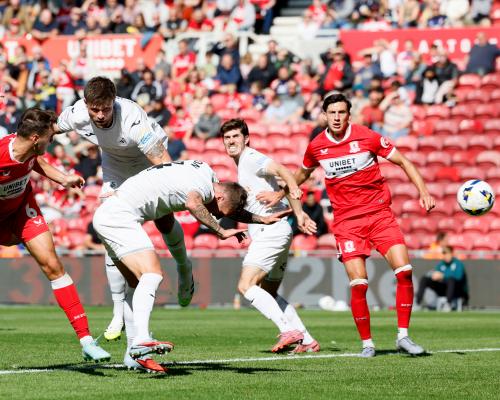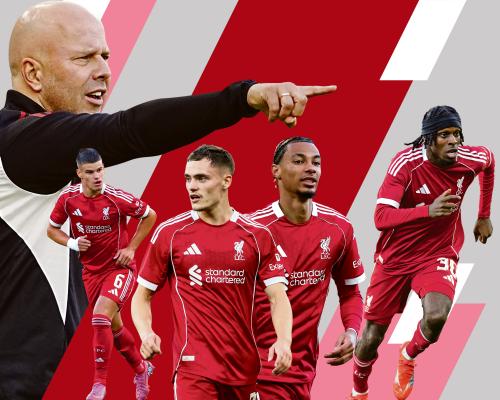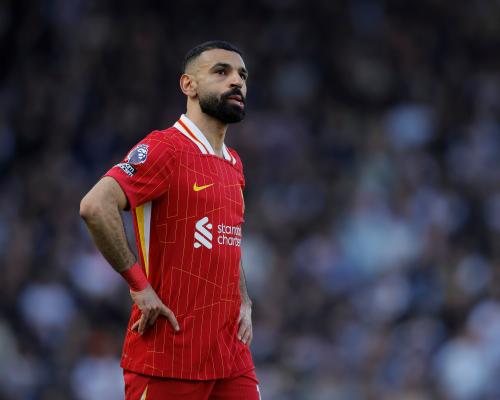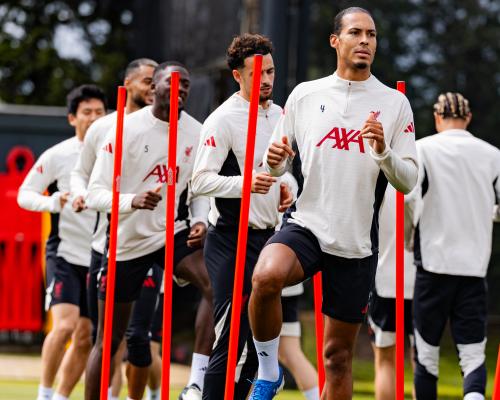
It is almost exactly 30 years since goals from Craig Hignett and Jan Aage Fjortoft secured Middlesbrough a Premier League victory against Chelsea as they played their first game at a brand new Riverside Stadium. Even the presence of Ruud Gullit at sweeper in a visiting side featuring Mark Hughes in attack could not deny Boro a 2-0 win as an exciting decade peopled by, among others, Juninho, Fabrizio Ravanelli, Nick Barmby, Gareth Southgate, Gaizka Mendieta and Bolo Zenden dawned.
Along the way Boro would reach three League Cup finals, winning one, while also losing FA Cup and, most excitingly, Uefa Cup finals, and bounce back from a one-season second-tier sabbatical.
Teesside was firmly on not just the UK but the European map. Or at least it was until the economic profile of football ownership changed and Steve Gibson’s club could no longer compete at the very highest level. These days the Riverside rarely rocks to capacity crowds and, after eight seasons out of the Premier League, a relatively modest 26,286 congregated to see how they shaped up under another new manager, Rob Edwards,.
The good news for Boro fans is that the answer is so far, so good, after Dael Fry’s winning header secured three points. Edwards is big on connectivity and he has taken the admirable step of attending supporters’ events over the summer, canvassing opinions while attempting to tap into the local psyche.
The former Luton manager has switched his formation to 3-4-2-1 while endeavouring to wean his squad off the slow, possession monopolising approach favoured by his predecessor, Michael Carrick.
Edwards wants to see his team in high tempo, high energy, hard-pressing mode, but his players reverted to their old, often overly patient, habits.
If Boro experienced a fortunate defensive reprieve when Ronald’s high velocity half-volley went millimetres wide, Swansea’s goalkeeper, Lawrence Vigouroux, did extremely well to fingertip Morgan Whittaker’s shot on to the crossbar.
Like Edwards, Alan Sheehan was anxious to endear himself to a newish public in his first competitive match after being promoted from Swansea’s caretaker boss to full-time head coach. How the Irishman could have done with Luka Modric, a minority investor in Swansea, not being otherwise engaged staffing Milan’s midfield. Sheehan speaks enthusiastically of the Croatian, claiming he has passed some invaluable technical tips on to the squad and is apparently looking forward to visiting south Wales in the near future.
Anotherprofile-raising, celebrity minority investor is the American rap star Snoop Dogg, and he and his contacts are apparently already doing wonders to boost Swansea’s commercial revenue streams. Snoop Dogg is also scheduled to visit the Liberty Stadium this season and has been forgiven for an unfortunate event in 2011 when he performed in South Wales wearing a … Cardiff top. As Swansea’s chief executive, Tom Gorringe, puts it: “We all make mistakes in life but he’s got the right shirt now.”
Fry headed Boro into an early second-half lead after his stooping connection with Whittaker’s corner. It proved the cue for the home side to take control and only a timely headed interception on Cameron Burgess’s part prevented Hayden Hackney putting Boro further ahead.
Hackney’s eye for a pass dictates that the 23-year-old midfielder does not lack admirers. Boro recently accepted a £20m bid for him from Ipswich only for a player who has been watched, repeatedly by, among other clubs, Newcastle, to reject that move. “It’s win-win situation for us,” said Edwards. “If Hayden’s here, great; he’s a brilliant player. But, if he’s not, the funds will be available for us to spend.”
Sheehan is also presiding over a stylistic shift as Swansea transition from the possession approach of Russell Martin to a hybrid, slightly more direct approach. It did not quite work here, but Swansea will be far from the only team to stumble in the shadow of the Cleveland Hills. Thirty years after the Riverside opened its doors, Edwards aims to return the good times to Teesside.





